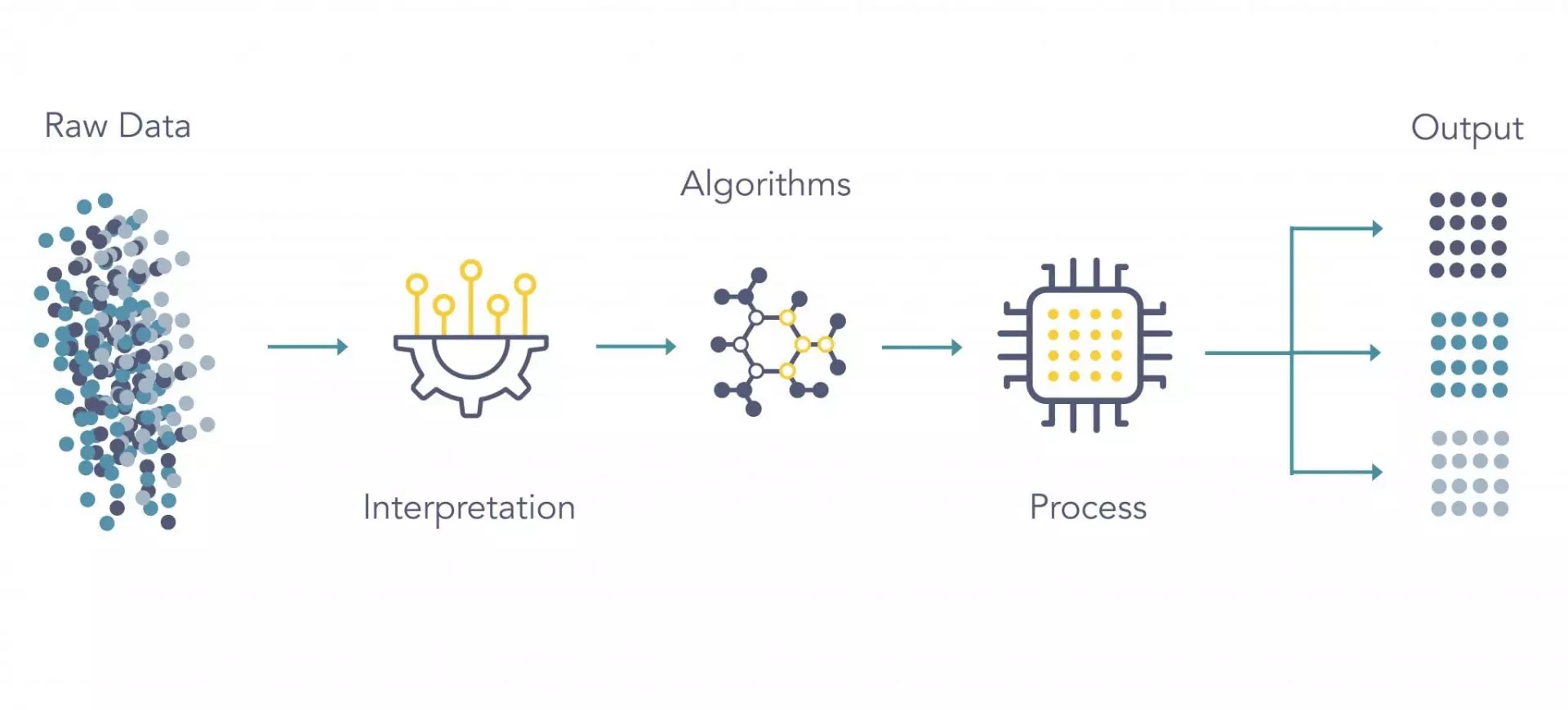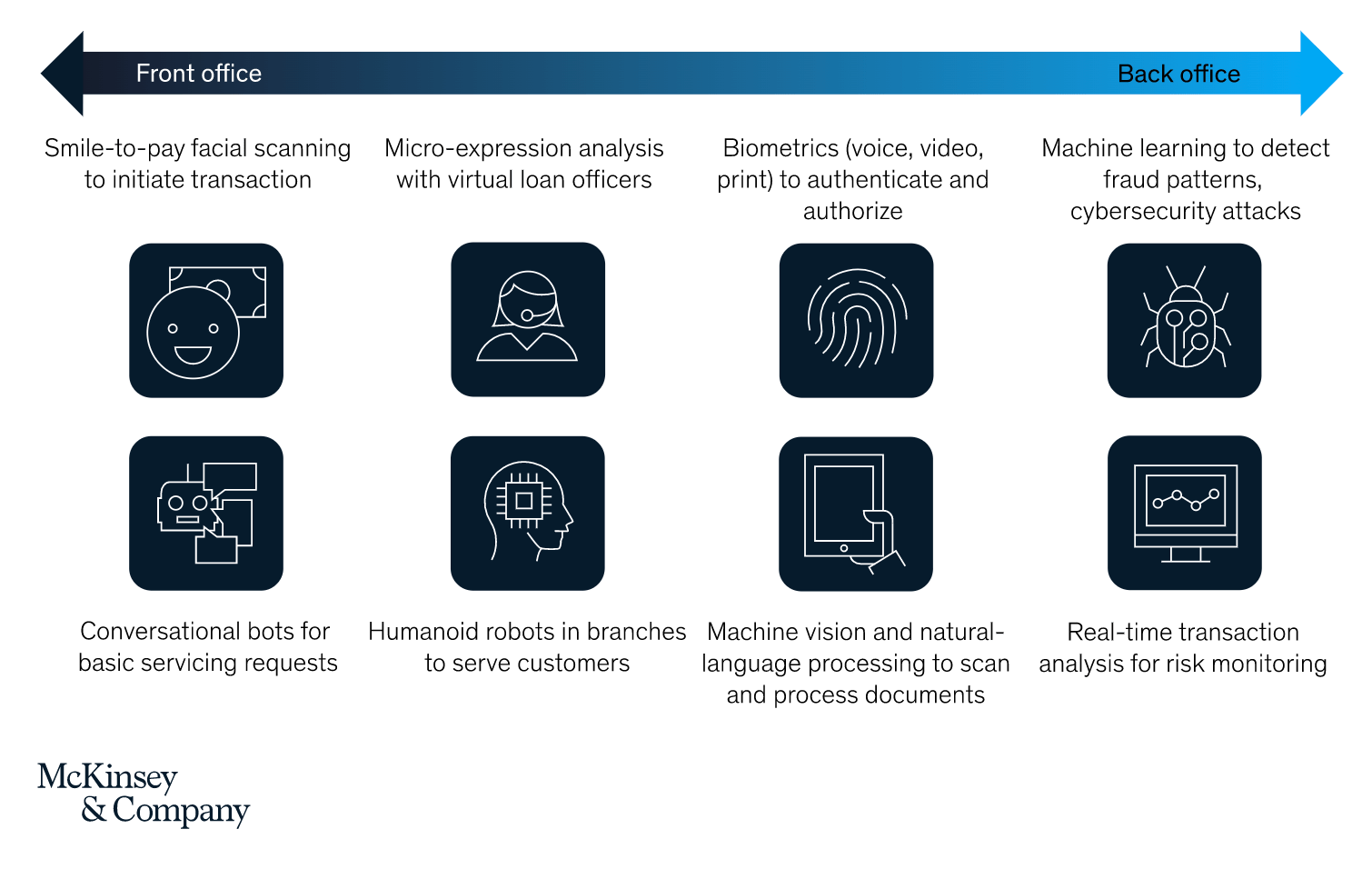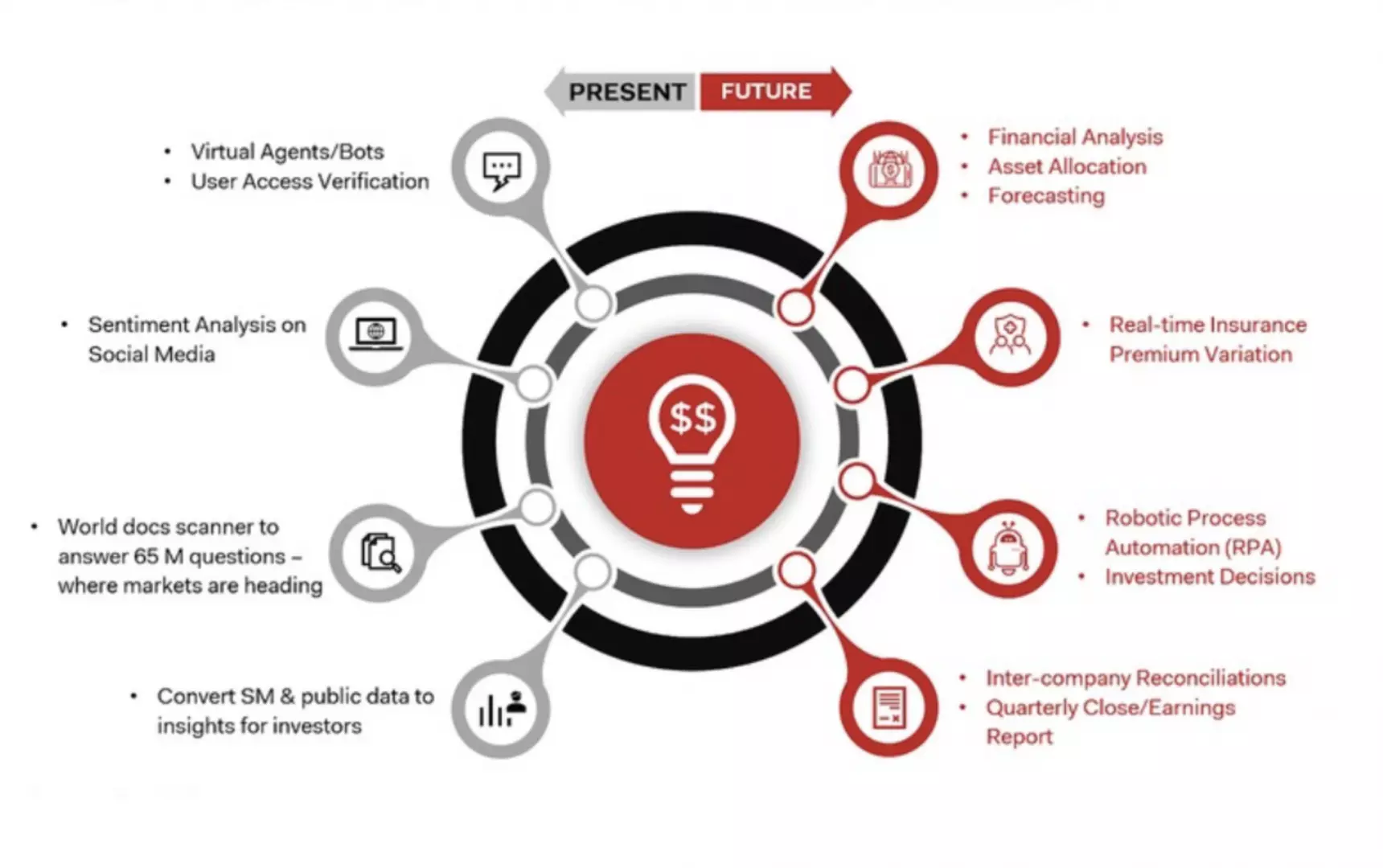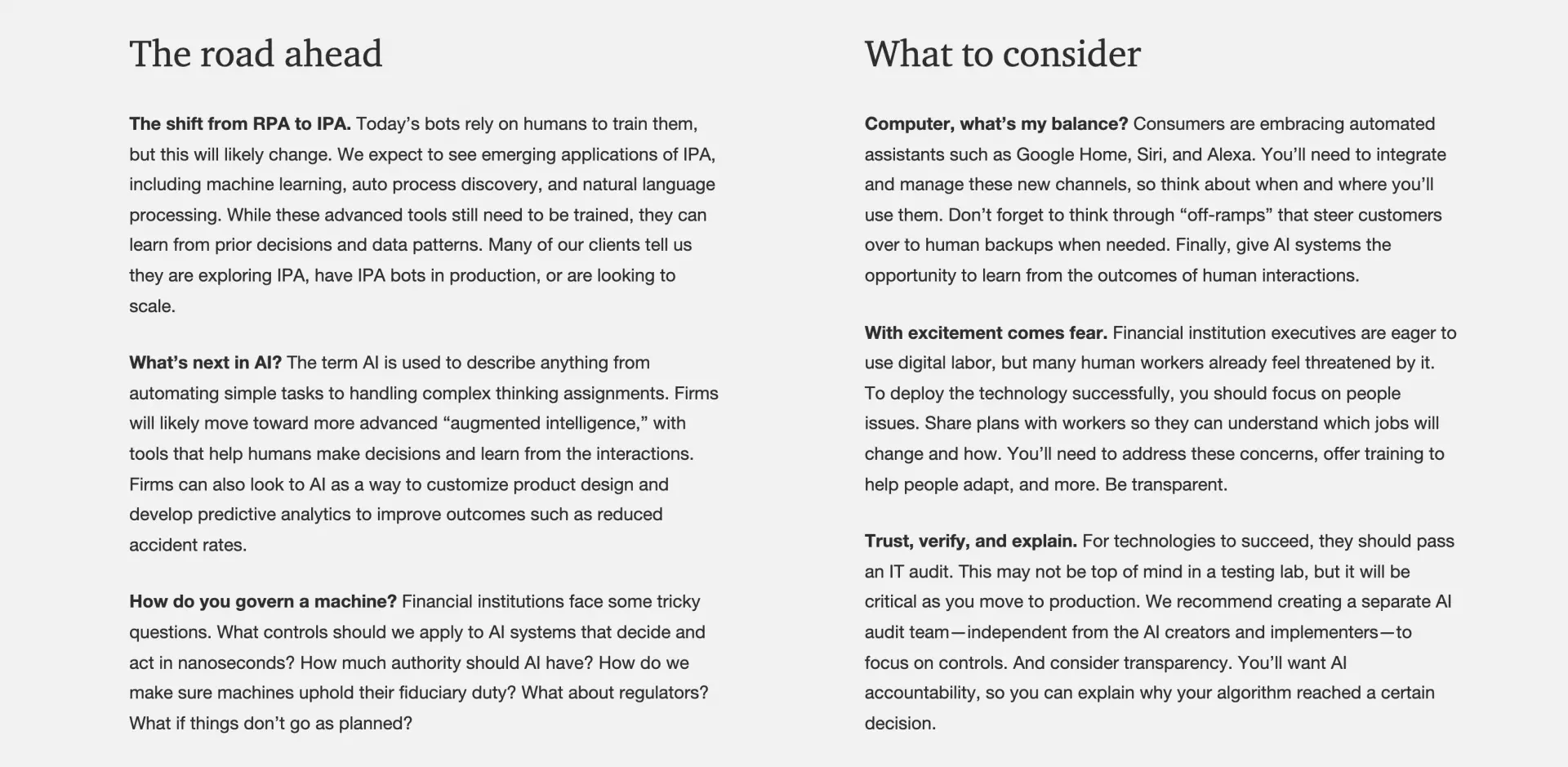Comments
- No comments found

Machine learning is streamlining and optimizing processes ranging from credit decisions to quantitative trading and financial risk management.
This exciting technology has the potential to transform financial services business models and markets for trading, credit and blockchain-based finance, reduce friction and enhance product offerings.

Machine learning is a subset of artificial intelligence that utilizes advanced statistical techniques to enable computing systems to improve at tasks with experience over time. Chatbots like Amazon’s Alexa and Apple’s Siri improve every year thanks to constant use by consumers coupled with the machine learning that takes place in the background.

Machine learning has grown substantially within the finance industry, enabled by the abundance of available data and the increase in the affordability of computing capacity.
The technology is increasingly deployed by financial services organizations in the following areas:
Tailored products
Chatbots and customer service support
Sentiment analysis
Robo-advice
Management of portfolio strategies
Automated execution
Process optimisation

Machine learning in finance is creating a huge impact; let’s take a look how.
Gone are the days when financial services only meant saving money in the bank or taking a loan from it. Machine learning expands the gamut of financial services by means of what are called as consumer financial services. Consumer financial services keep the consumers and their unique demands at the core of their highly optimized offerings. Machine learning makes it possible to provide consumers with a personal financial concierge that automatically lets you decide a suitable style of spending, saving, and investing that are based on your personal habits and goals. With machine learning in finance, it’s possible to create intelligent products that can learn from your financial data and determine what’s working for you and what’s not, and help you track your financial activities better.
This is something we all must have experienced and would, therefore, agree with. Machine learning in finance has automated processes and drastically reduced the cost of serving customers. While machine learning has, on one hand, reduced the cost of financial services, on the other, it has made financing extremely convenient to avail. Through various digital servicing channels, Machine learning is proving effective in attracting that large section of the population to financial services, which previously found them cumbersome, expensive, and time-consuming.
Machine learning in finance is opening up new avenues for banking and insurance leaders to seek advice. No more are financial experts limited to human opinions in order to make forecasts or recommendations in the field of finance. With machine learning in finance, these leaders can now ask machines questions that are pertinent to their business and these machines can, in turn, analyze data and help them take data-driven management decisions. As far as consumers are concerned, they can have their financial portfolio managed at essentially no management fee and with high efficiency, as opposed to availing the services of a traditional advisor who may charge around 1% of your investments.
With machine learning, it is possible to simulate umpteen situations where a fraud or cyber crime may occur. Machine learning in finance, therefore, follows a proactive approach to making the financial services’ environment safe and breach-proof. Unlike before, designers of a financial service system do not need to wait for an incidence of fraud to be detected and then secure a system. Machine learning is helping the field of finance innovate freely by securing its products and services through a continuous understanding of human psychology. Besides, machine learning in finance also helps keep a strict regulatory oversight. Machine learning ensures that all policies, regulations, and security measures are being sincerely followed while designing and delivering any financial service.
Critical decisions in fields like finance cannot afford to be marred by the inaccuracy involved in human decisions. Machine learning in finance implies thorough research, understanding, and learning over long periods of time and vast volumes of data. Machine learning introduces automation in areas that require high degrees of incisiveness thereby, safeguarding the trust of consumers.
Machine learning is all about continuous learning and re-learning of patterns, data, and developments in the financial world.
It gives financial organizations more flexibility to build upon their current systems, products and services.

Successful banking-related chatbot interactions will grow 3,1505% between 2019-2023.
826 million hours will be saved by banks through chatbot interactions in 2023.
79% of successful chatbot interactions will be through mobile banking apps in 2023.
Naveen is the Founder and CEO of Allerin, a software solutions provider that delivers innovative and agile solutions that enable to automate, inspire and impress. He is a seasoned professional with more than 20 years of experience, with extensive experience in customizing open source products for cost optimizations of large scale IT deployment. He is currently working on Internet of Things solutions with Big Data Analytics. Naveen completed his programming qualifications in various Indian institutes.
Leave your comments
Post comment as a guest